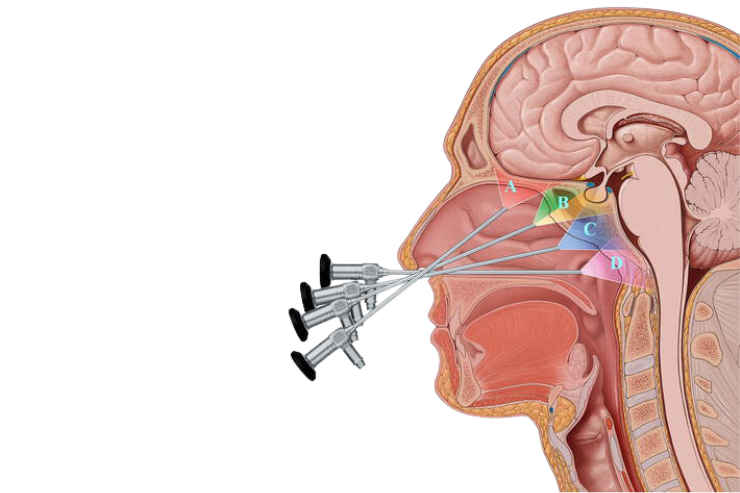
Endoscopic brain surgery is a cutting-edge technique used to treat various brain conditions through minimally invasive methods. Utilizing advanced technology, this procedure allows neurosurgeons to access and address issues within the brain with minimal disruption to surrounding tissues. This approach can lead to quicker recovery times, less postoperative pain, and improved outcomes compared to traditional open brain surgery.
What is Endoscopic Brain Surgery?
Endoscopic brain surgery involves the use of a thin, flexible tube equipped with a camera and specialized instruments, known as an endoscope, to perform surgical procedures within the brain. The endoscope is inserted through small incisions or natural body openings, providing a detailed view of the brain’s internal structures on a video monitor.
Key Advantages:
Conditions Treated with Endoscopic Brain Surgery
Brain Tumors:
Hydrocephalus:
Brain Cysts:
Pituitary Tumors:
Choroid Plexus Papillomas:
The Endoscopic Brain Surgery Procedure
Pre-Surgery Preparation:
During the Procedure:
Post-Surgery Care:
Why Choose Endoscopic Brain Surgery?
Endoscopic brain surgery offers numerous benefits, including minimal invasiveness, precise targeting of brain conditions, and faster recovery times. Dr. Sameep Koshti is highly skilled in this advanced surgical technique, bringing expertise and precision to each procedure. If you are facing a brain condition that may benefit from endoscopic surgery, consulting with Dr. Koshti can provide you with personalized treatment options and a pathway to improved health and quality of life.
For advanced, minimally invasive brain surgery, trust in the expertise of Dr. Sameep Koshti. With cutting-edge technology and a commitment to patient care, Dr. Koshti ensures that each patient receives the highest standard of treatment for their unique needs.